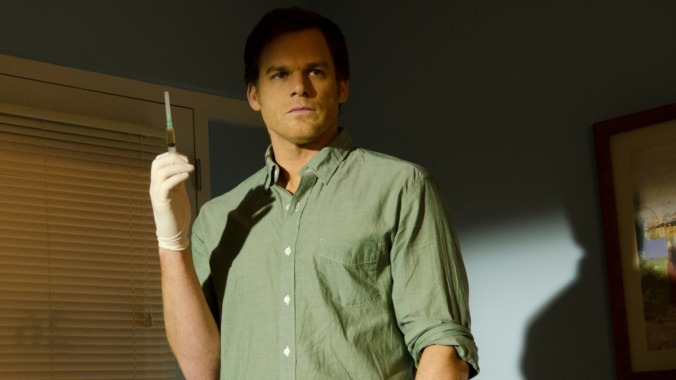Back in 2013, people really, really hated on the Dexter finale

Given the recent news of Showtime’s hit Dexter returning as a limited series, with Michael C. Hall reprising his most famous role as the serial killer with a code, it seemed worth reflecting on how the series ended. More specifically, it seemed worth re-watching that last episode, named “Remember The Monsters?”, with fresh eyes, ones that hadn’t just spent the past few months waiting patiently as Dexter Morgan desultorily plodded his way through a half-baked final season’s narrative in order to see if the show could stick the landing. At the time, it was nigh-impossible to avoid the general response from the audience at large when it came to assessing the quality of that final installment. You couldn’t help but imbibe the smog that was the overall reaction to it.
Because hoo boy, did people hate it. “One of the worst endings to a television show I’ve ever seen,” fumed The Atlantic. A “sloppy sendoff,” offered Variety. A “terrible end,” opined Vulture. Hell, we here at The A.V. Club hated it so much (“what was intended to be a gut punch felt more like a slap in the face”) that we ran a second review the day after the first, just to point out that the entire season already sucked so bad it was almost inevitable that the ending would be garbage (“What was once a horror program became farce…an awful ending to a coulda-been-great show”). If you were anywhere near the internet that week (or TV, or radio, and on and on), the stink fumes radiating off of the episode—and the vitriol that poured forth in response—were inescapable. Collectively, seemingly every Dexter viewer became Comic Book Guy in tandem.









![Rob Reiner's son booked for murder amid homicide investigation [Updated]](https://img.pastemagazine.com/wp-content/avuploads/2025/12/15131025/MixCollage-15-Dec-2025-01-10-PM-9121.jpg)

























![HBO teases new Euphoria, Larry David, and much more in 2026 sizzle reel [Updated]](https://img.pastemagazine.com/wp-content/avuploads/2025/12/12100344/MixCollage-12-Dec-2025-09-56-AM-9137.jpg)




